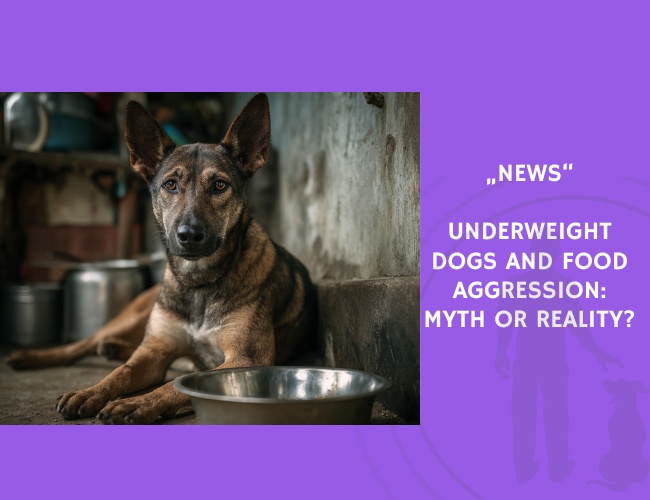Does food aggression mean a dog has suffered from hunger? A new analysis of 900 cruelty case dogs challenges long-held assumptions about underweight dogs, guarding behavior, and what truly drives resource protection.
Are underweight dogs more likely to guard food? According to popular belief in many shelters and rescue circles, the answer has long been yes — but this study tells a different story.
Miller et al. (2019) analysed data from 900 dogs involved in criminal cruelty cases, including those who had experienced significant malnutrition. Surprisingly, underweight dogs were no more likely to display food aggression than normal-weight dogs. In fact, food guarding behaviour was relatively rare across all weight categories.
Other trends emerged: Female dogs were significantly less likely to guard food or chews than males, and location mattered — dogs from urban cruelty cases (e.g., New York City) showed more guarding behaviour than those from rural or large-scale rescues. However, breed type was not a predictive factor.
Implications are profound: Behavioural evaluations that assume food guarding indicates past deprivation may be scientifically unsupported. This has consequences for courtroom testimony, shelter intake assessments, and public perception. Resource guarding may stem more from temperament and sex than past trauma.










